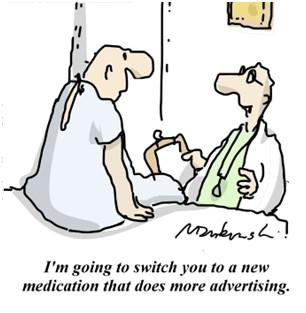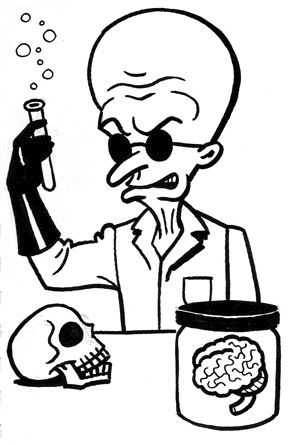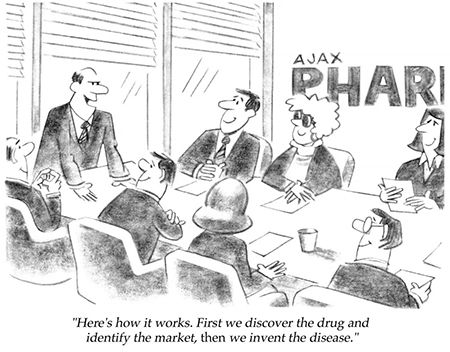In this blog post I identify a profound problem in psychiatry and psychology. At the bottom of the post there are links to a few of my case stories which illustrate how to fix the problem.
Before jumping in I want to address an issue with critiquing mental health practice. This is a highly sensitive topic: The awful stigma around mental health issues has people on guard against being put down and marginalized, and rightfully so. Therefore, from the outset, let me say I’m a champion of the fact that every human being has a life process to deal with, and problems are a natural part of it. However, we must be careful not to misinterpret critiques of the system as indications of stigmatizing those suffering. To the contrary, the only way to make progress is to identify and challenge misguided methods. I know that casting doubt on current practices can be unsettling for some folks but my goal is to promote a safer and more effective way of addressing what ails us.
When I lived in Switzerland I worked in a neuroscience lab for a while looking at brain scans of depressed people. I noticed that what we did in the lab and what the public thought we did were two entirely different things. I was doing my doctorate in clinical psychology and was well aware that there’s always going to be a gap in what the public understands about science but this particular misunderstanding disturbed me because of its implications.
Psychiatry and big pharma work together to take advantage of the public’s science illiteracy. Each year billions of drug company dollars are spent on media campaigns that exploit the fact that most people don’t know how science works. These campaigns have been astonishingly successful at conveying a distorted picture of the relationship between the brain and mental health issues. The public consumes these ideas without being able to vet them, and then they become accepted, commonplace ways of thinking.

When you hear on the news that a certain illness or event (Y) is statistically “linked to,” “associated with,” or “correlated with” something (X) do you think it means X causes Y? Most people do, especially since the media likes to sensationalize these things. But statistical correlation (or association / links) has nothing to do with causation. It only means that two things are observed to happen at the same time. Otherwise you could say eating ice cream causes crime since an increase in the rate of these two events can be statistically correlated in the summertime.
Proving cause-and-effect is a much more complex process. Images of a depressed person’s brain provides no information on whether the depression causes the brain activity, the brain activity causes the depression, or a third factor drives both of these events. In fact, it gives no clues as to whether causality is even the right paradigm for understanding depression. Brain scans are highly effective for diagnosing neurological disorders, strokes, tumors, etc, but useless when it comes to understanding the contents of the mind.
After sixty years of research there still hasn’t been a study confirming a biochemical cause of mental health issues. Not one! Let me repeat that—none, nada, zilch. When discussing the brain and mental health all research reports use qualifying language such as “might be,” “may be,” “could be,” “is thought to be”… and so on. This is because causation has never been demonstrated; there are only correlative studies showing brain activity that happens at the same time a particular state of mind occurs. Without science literacy the public doesn’t notice how these unsubstantiated ideas have been marketed as established truths.
The same is true for neurotransmitters like serotonin. People have been convinced that depression is caused by a serotonin deficiency. Only problem is there are no studies proving it. There isn’t even a way to diagnose a serotonin deficiency because there’s no method to accurately test for it, and scientists don’t know how much we’re supposed to have in our brains in the first place. There’s a test that measures serotonin in the blood, but blood levels don’t reflect brain levels. The blood test is only used to check for serotonin-producing tumors outside of the brain. All this is compounded by the fact that certain drugs like Resperine, which decreases serotonin, have antidepressant effects.
Despite what people have been told, the medications they consume don’t target and correct a serotonin deficiency nor any other kind of chemical imbalance. The FDA double-blind clinical trials for the most popular antidepressants have confirmed that most of the effect is placebo. The remaining effect comes from psychoactive ingredients which, rather than fixing a chemical imbalance, actually creates one in order to produce an altered state that takes one’s mind away from one’s symptoms.
The serotonin hypothesis has been around since the 1960s but still has no studies to confirm it. Yet, drug companies have spun it as an accepted “fact” in order to sell antidepressants. Without science knowledge the public has had no choice but to buy into this falsehood.

For example, it makes total sense to think the sun goes around the Earth since you can watch it move across the sky. However, in the 1600s Galileo proved that the Earth actually goes around the sun. He knew this from his work in astronomy. Similarly, in the early 1900s Einstein’s theory of relativity overturned the entire field of physics with theories that made mathematical sense but were almost impossible to understand in a common sense way. There are countless other examples where our senses fail us—like the common sense perception that the Earth is flat…but let’s stay away from that one : )
Oftentimes, science trumps common sense.
If you don’t have a rigorous science background and you hear enough times that depression is caused by a serotonin deficiency you have no choice but to believe it… and therein lies the genius of psychiatry and the drug companies. They know that because of medicine’s fantastic advances in other areas the uneducated public will easily buy into the notion of a “chemical imbalance” when it comes to mental health issues. They also know that the average person isn’t analytical enough to identify the discrepancy between being told they have a specific identifiable chemical imbalance while being diagnosed through a questionnaire instead of a medical test.

People suffering from mental health issues are looking for answers, and it’s of the utmost ethical concern to provide true knowledge and tools, not half truths that relieve momentary suffering by masking symptoms with medications while marginalizing safer and more effective ways of helping. During the ten years I lived in Switzerland I worked with thousands of clients in private practice and workshops. Many of them came to me with diagnoses they’d received from their psychiatrists or psychologists. A lot of them were on medications. Some claimed the meds were life saving.
However, as I helped them process their experiences everything changed. Not only were most of them able to transform their painful states of mind, they became much more self-aware than they’d been even before their problems had begun. This led me to the understanding that mental health issues are not diseases to suppress for life but rather processes of profound personal growth and change trying to happen.
After a while I had to explain to my clients’ psychiatrists that while the meds had been taking the edge off their symptoms they no longer needed them. In fact, the pills were just dulling their senses. One thing I discovered, however, is that even though psychiatry says these medications are non-addictive this is untrue. Many of these folks experienced withdrawal symptoms and worse problems than before they’d started the meds—a rebound effect. But working with their processes changed everything.
The focus of the mental health field should be on developing and teaching methods for processing and transforming painful states of mind, not just on giving drugs and teaching “coping skills.” There’s far too much emphasis on “managing disease” and too little on empowering people by giving them tools to hack into their difficult experiences in order to make real change.
Big pharma and psychiatry take advantage of people by knowing that once an “explanation” is given for their problems, regardless of how true it is, they will defend that explanation at all costs. Some kind of understanding always feels better than no understanding. The result is that some folks don’t only buy into it, they become “experts” in it, religiously defend it, and can tell you with confidence all about brain scans, neurotransmitters, and even genetics without having even a basic science education in these fields.
They will say things like since depression runs in their family it must be “genetic,” without knowing that psychology is also passed down through generations regardless of genetics. Furthermore, they will assume that if it’s genetic, it lies outside the realm of therapy intervention to some extent.
All these ideas come from what they hear on the airwaves, from each other, or from their shrink. It’s become a psychiatric culture of belief rather than real science. This disempowers those suffering with mental health problems while creating a never-ending income stream for psychiatry and the drug companies.
Despite the fact that the even the National Institute of Mental Health, the world’s largest funding agency for mental health research, has debunked the chemical imbalance hypothesis, the myth persists. And, as they say, someone’s laughing all the way to the bank.

Psychiatrists, and to a lesser extent, psychologists, have adequate science training and should know better, but it’s not that simple. A growing number of practitioners view the psychiatry / psychology diagnostic manual (called DSM) as a book of fictitious information based on ideology rather than science, but they can’t act on this because insurance companies will only pay for diagnosed conditions.
I know scores of psychiatrists, psychologists, therapists, and social workers who fudge diagnoses so they can get paid. An inside joke amongst these professionals is that when in doubt use the generic diagnosis known as “Adjustment Disorder,” which, as you can guess, can mean almost anything you want it to mean.
The reason all this is important is because the chemical imbalance idea has become so pervasive it convinces folks who don’t have science awareness that they have an “illness” on par with a medical disease and therefore require meds for life. Rather than using medication briefly in an initial crisis and quickly moving on to processing the problem, people have been convinced they’re permanently “sick.” This is not only false, dangerous, and irresponsible, it marginalizes research into new therapy methods. It also creates a self-reinforcing culture of disease instead of growth and transformation.
Years of media campaigns and messaging from psychiatrists and drug companies have succeeded in spinning the data to their advantage. If you doubt the power of these kinds of campaigns to influence hearts and minds just look at a positive version of them: Years of advertisements on the dangers of smoking succeeded in turning around many decades of glorification of the practice. The result has been a drastic reduction in smoking rates. For better or worse, the public tends to follow what they’re told.
When I look at the mental health field I see an extremely fragmented picture—a mainstream tied to big pharma and insurance companies, and literally hundreds of alternative approaches. Nowadays you can go to any number of personal growth teachers, life coaches, and spiritual advisors, and can try an endless variety of therapeutic methods.
In the history of science this type of fragmentation always occurs when a revolution is about to happen. Cracks appear in the status quo and new voices and visions arise. Who knows? Perhaps the chemical imbalance idea that started sixty years ago will become a thing of the past and we will truly learn how to process life’s problems.
You can read some of my case stories here: How Clara Healed Her Severe Mood Swings* and How Bob Transformed His Depressed Moods*
Be well!
*Client names have been changed.


